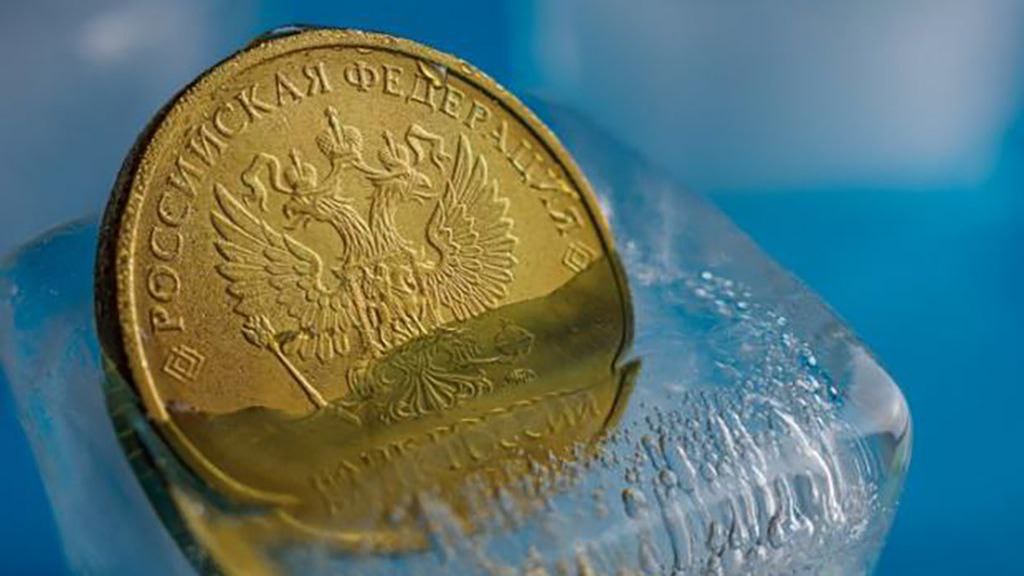Brussels to test new scheme to convert frozen Russian billions into Ukraine reconstruction fund

The European Commission is developing a mechanism to transfer nearly €200 billion ($233 bn) in frozen Russian assets for Ukraine’s post-war reconstruction, according to Politico.
Brussels is exploring options to move these assets into higher-risk investments that could generate greater profits for Ukraine while increasing pressure on Moscow.
“We are advancing the work on the Russian frozen assets to contribute to Ukraine’s defense and reconstruction,” Commission President Ursula von der Leyen said on 28 August, marking her strongest public comments on the initiative to date.
The proposal stops short of immediate asset confiscation, which most EU member states oppose due to financial and legal concerns. Instead, EU foreign ministers will debate the plan for the first time Saturday during an informal meeting in Copenhagen, Denmark, focusing on “further options for the use of revenues stemming from Russian immobilized sovereign assets,” according to preparatory documents obtained by Politico.
The initiative comes as Ukraine faces an estimated €8 billion ($9.3 bn) budget shortfall in 2026, while European nations struggle with constrained domestic budgets and limited capacity for EU-wide borrowing. The urgency has intensified amid reduced US engagement in Ukraine and President Donald Trump’s unsuccessful peace negotiation attempts.
“We hear that it’s more difficult to raise money [from national finances or the EU budget],” explained Kerli Veski, undersecretary for legal and consular affairs at Estonia’s foreign ministry. “[But] we have those assets there and the logical question is how can we and why don’t we use those assets.”
Baltic states and several Eastern European countries have long advocated for complete asset confiscation. Within the Commission, Latvian Economy Commissioner Valdis Dombrovskis and Estonian Foreign Policy Chief Kaja Kallas have championed this approach. However, Western European nations including Germany, Italy, and Belgium continue to resist due to legal and financial exposure concerns. Belgium faces particular vulnerability as it hosts Euroclear, the financial institution holding the majority of Russian assets.
The G7 previously agreed in 2024 to provide €45 billion ($52 bn) in profits from investing the assets to Ukraine while preserving the underlying funds. The EU’s €18 billion ($18 bn) portion of this arrangement will be fully distributed by year-end, creating pressure for additional revenue streams.
Commission lawyers are examining the transfer of assets to a “special purpose vehicle” supported by multiple EU and potentially non-EU countries. Officials compare this proposed fund to the European Stability Mechanism, a eurozone-only bailout fund established outside EU treaties.
The potential Ukraine fund would include G7 nations such as the United Kingdom and Canada, which support asset confiscation, though details remain under negotiation, according to EU officials.
This new structure would grant the EU enhanced control over asset transfer timing to Ukraine. Under current regulations, any single country can return the assets to Moscow by vetoing sanctions renewal, which occurs every six months. Hungary’s pro-Russia stance makes it the most likely candidate for such action.
Moving funds to a new entity with potentially different voting requirements would neutralize Hungary’s veto power.
The asset transfer would also enable investment in higher-yield, riskier financial instruments compared to current practices. Euroclear currently invests the assets through Belgium’s central bank at the lowest available risk-free return rate.
Euroclear CEO Valérie Urbain has expressed concern that EU taxpayers could bear losses from riskier investment strategies. Belgium seeks other EU countries to share liability under the Commission’s proposed framework.
“Belgium is not alone here. We need to support and be taking part in mitigating that risk,” Veski said. “It’s not a question of letting Belgium deal with it [while] we watch from the sideline.”
Recent reports indicate Belgium has become more receptive to the Commission’s plan, with support also emerging from countries geographically distant from Russia, including Spain, according to EU officials and senior diplomats.
